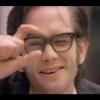General Chat / NE 2012 U.S. Election discussion.
-
 16-October 12
16-October 12
-

 Ling
Offline
Ling
Offline
Someone needs to brush up on his quantum theory. Also, the big bang theory is the collection of evidence that traces all matter in the universe to a single concentrated point, based on the trajectories and velocities of celestial bodies. It is practically irrefutable at this point to say all matter in the known universe came from a single concentrated point, and we know from our understanding of chemistry and physics that supercondensed matter (absolutely no spaces between atoms and subatomic particles) could fit in an extremely small space, compared to a celestial body. We do not yet have a kind of physics that describes small, super-dense, fast-moving particles, as the conditions require environments to test in that we simply can't re-enact here. Yet, anyway.I AM using it as an argument against the big bang. It is based on the assumption that everything came from nothing. As for creationists, they don't have that problem because they think God has always existed. Their problem lies in trying to prove that assumption, which they can't.
MA's got it. -

 Casimir
Offline
It's not that we don't have the required environments, it's rather that we need a unified theory of macro- and microphysics first, as with our current physical mindset, it's impossible to locate particles on a quantum level with certainty (google "Uncertainty principle").
Casimir
Offline
It's not that we don't have the required environments, it's rather that we need a unified theory of macro- and microphysics first, as with our current physical mindset, it's impossible to locate particles on a quantum level with certainty (google "Uncertainty principle"). -

Wicksteed Offline
Maybe I'm missing something here, but did the three of you (MA, That Guy, Ling) actually read what Avanine wrote?
What I understood from his posts is that the big-bang-theory is based on assumptions, as every scientific or other theory is and has to be, just as religion is based on the assumption (in this case called belief) of the existence of a god. Now without making any judgement on religion, hes saying he's sceptical about the big-bang theory because its assumptions are not plausible to him. This is a perfectly normal and necessary part of scientific thinking, it's just not very productive yet because he has not found any alternative assumptions to base a better theory on, thus as he said the big-bang theory is the best that science has to offer at the moment.
On the other hand, without making a judgement on science, he's saying that creationists cannot prove their assumption of the existence of a god. No need to go mad on him. -

 Ling
Offline
I don't think any of us meant to sound like we were attacking him; I certainly wasn't. But I suppose it depends on the "assumptions" you want to debate. I haven't personally read the papers that described these theories, I only know the overviews that my physics classes, Wikipedia, and occasionally Reddit articles tell me. I would not think that any uncertainties would be published as certainties. The only bits that are accepted into the theory are those that are repeatably proven and widely accepted among the scientific community. If there is guesswork involved, it's either left out or a footnote, not the headline.
Ling
Offline
I don't think any of us meant to sound like we were attacking him; I certainly wasn't. But I suppose it depends on the "assumptions" you want to debate. I haven't personally read the papers that described these theories, I only know the overviews that my physics classes, Wikipedia, and occasionally Reddit articles tell me. I would not think that any uncertainties would be published as certainties. The only bits that are accepted into the theory are those that are repeatably proven and widely accepted among the scientific community. If there is guesswork involved, it's either left out or a footnote, not the headline.
Unless you mean assumptions of negligible factors in the equations, in which these generally must be proven to be statistically insignificant. -

 AvanineCommuter
Offline
AvanineCommuter
Offline
So to recap:
You don't know what started the universe. Therefore, you ignore the massive amounts of evidence that suggest that the big bang occurred and that matter can arise from energy in a vacuum. Therefore, the Big Bang Theory must be taught in schools with a wink and a smile, as if some dude tripping on shrooms came up with the fantastical idea and nobody has bothered to look into it since.
The word you're looking for, by the way, is 'hypothesis', not 'theory'. And there's a shit ton of evidence supporting this one.
And either way, you don't teach math in a literature course, and you don't teach religion in a science course. I don't know if this is what you're proposing, but "teaching the controvery" is a nice way of saying "I don't and don't want to understand science."
You need to stop making assumptions. Where did I claim to ignore the bevy of evidence that supports the big bang theory? You're putting words in my mouth and your condescension is unappreciated.But the idea that God always existed isn't based on the assumption that at least one thing came from nothing? If matter can't come from nothing, how can God just exist? Just because creationists can't prove why God just exists, it becomes an argument against the big bang?? I found your last sentence hard to understand, so I will be back in a bit to see if I misunderstood.
I am saying Atheists who believe the entire universe was created by the big bang needs to come up with a solution to the question of how something comes from nothing. To this day, this has not been answered. What the big bang theory does do well (as Ling explains very clearly) is trace our universe back to a singularity. How this singularity came into existence is unknown. Theists do not have this problem because their Bible states that God has always existed, and therefore there is no need to answer the question of how he came into being. That is all I was saying about theists vs. atheists.Someone needs to brush up on his quantum theory. Also, the big bang theory is the collection of evidence that traces all matter in the universe to a single concentrated point, based on the trajectories and velocities of celestial bodies. It is practically irrefutable at this point to say all matter in the known universe came from a single concentrated point, and we know from our understanding of chemistry and physics that supercondensed matter (absolutely no spaces between atoms and subatomic particles) could fit in an extremely small space, compared to a celestial body. We do not yet have a kind of physics that describes small, super-dense, fast-moving particles, as the conditions require environments to test in that we simply can't re-enact here. Yet, anyway.
MA's got it.
Now I am not discounting the entire theory because of the one unanswerable question, but to say that the evidence is irrefutable at this point is to have the same bigoted mindset that scientists had when Galileo proved the Sun was the center of our solar system... NOTHING is conclusive in science, and that is the point I am stressing. What is seen as scientific fact must be well supported and studied, so I am NOT discounting the theory at all, rather than saying it is incomplete and could be further refined than the state that it is in now. People accepting it as pure hard fact forget this side of science; it is the best we've got now, so I'll take it, but I do not accept it as the cold hard truth of how the universe began.
Thank you Wicksteed for understand what I was trying to say. I am no scientist and am not an expert in this field so I cannot give an alternative proposal or answer, but neither can anyone else (scientists included). -

 Louis!
Offline
What happened to the election discussion? We went from election to gay rights to religion V science.
Louis!
Offline
What happened to the election discussion? We went from election to gay rights to religion V science.
I vote Meryl Streep for President. -

 Casimir
Offline
1. The Big Bang didn't come from "nothing". All particles that constitute today's universe were condensed into one point. This results in a so-called super singularity. This point with ALL the energy and ALL the information of the whole universe did not follow the physical laws we know today, which is mathematically proven. This is the reason for why ANY information about what might've happened before the Big Bang COULD NOT POSSIBLY be transported into our universe. Think about securely erasing your harddrive and then selling it to anyone else. If you don't tell this person what you were using the HD for, he could not possibly recover any information that was stored on it before he bought it.
Casimir
Offline
1. The Big Bang didn't come from "nothing". All particles that constitute today's universe were condensed into one point. This results in a so-called super singularity. This point with ALL the energy and ALL the information of the whole universe did not follow the physical laws we know today, which is mathematically proven. This is the reason for why ANY information about what might've happened before the Big Bang COULD NOT POSSIBLY be transported into our universe. Think about securely erasing your harddrive and then selling it to anyone else. If you don't tell this person what you were using the HD for, he could not possibly recover any information that was stored on it before he bought it.
Millionths of a second after the Big Bang, the universe expanded far enough for it to cool down significantly, resulting in the particles vibrating slow enough for the laws of physics to come into existence. This very moment is the one point in time we can logically trace the universe back to.
One popular hypthesis of many physicists is that before the big bang, another type of universe of some kind (basically meaning just some kind of information storage whatsoever) existed, expanded, collapsed into the tyniest possible point and erupted again into what we know as the big bang.
Get your string theory together before you say something about what physicists might or might not know and believe.
2. The difference between science and religion is that us scientist know that theories are incomplete. We always strive for new advances, for new informations, for new better theories. We don't accept the premise of an ultimate power that can not be challenged and that, most importantly, only shows its existence to those who don't question it and therefore is neither falsifiably nor provable. The religious impulse might be a part of mankind. It is, however, undesirable. -

 Casimir
Offline
Louis: The constitution separates religion from state. However, US society has reached a stage SO deceitful that no presidential candidate will be elected EVER without emphazising his or her personal faith and how strongly it would affect their decisions in office. Therefore, it is not only desirable, but also everybody's duty to challenge the self-proclaimed morality of ANY religious group.
Casimir
Offline
Louis: The constitution separates religion from state. However, US society has reached a stage SO deceitful that no presidential candidate will be elected EVER without emphazising his or her personal faith and how strongly it would affect their decisions in office. Therefore, it is not only desirable, but also everybody's duty to challenge the self-proclaimed morality of ANY religious group. -

Wicksteed Offline
Just playing the devils advocate:1. The Big Bang didn't come from "nothing". All particles that constitute today's universe were condensed into one point. This results in a so-called god. This point with ALL the energy and ALL the information of the whole universe did not follow the rational laws we know today, which is proven by the bible.
-

 Casimir
Offline
Everything that was produced by the Big Bang cooled down over time to be subject to the laws of physics. Therefore, a possible being living inside that concentration of information, as risible as this premise is, would have had possible non-human powers for the exact amount of time between the Big Bang and the synthesis of the laws.
Casimir
Offline
Everything that was produced by the Big Bang cooled down over time to be subject to the laws of physics. Therefore, a possible being living inside that concentration of information, as risible as this premise is, would have had possible non-human powers for the exact amount of time between the Big Bang and the synthesis of the laws.
1. Living under guidelines and rules without questioning them, without having both the urge and even the possibility to question them, is effectively a state of slavery. The punishment of thought crime (Do not desire your neighbors whatever) is one of the attributes of dictatorship.
Living without questioning everything is a betrayal to nature.
2. The only time it is morally acceptable to state having knowledge that others don't have, is when you're at least willing to prove the accountability of your information either through physical or mathematical evidence, or by using a completely imperturbable line of logical reasoning.
It is of no use to "discuss" beliefs with those who don't grant their belief to potentially be wrong.
I don't deny the overall existence of a supernatural entity, I deny the existence of a supernatural entity in the one universe that we populate and whose laws we abide by existing. Everything that MIGHT BE outside of this horizon, is not only out of reach, but also necessary to ignore. There will never be any way of information exchange, regardless the direction. No influence, no communication, no possibility of mutual confirmability.
tl;dr:
- No supernatural being in our universe with our laws of physics
- As the Big Bang is an event horizon, there is no, and nor will there ever be, a possibility to receive ANY information about things that might or might not be OUTSIDE of this horizon
- All of you, get your act together, believe what you want as long as it doesn't affect the lives of others, be a valuable member of EVERYONE's society, help save both the human race and the earth as we know it other than by praying AND DON'T YOU DARE ELECT MITT MOTHERFRIGGIN ROMNEY. -

 Ling
Offline
Ling
Offline
The number of fundamentalists that genuinely believe the United States were founded on strong Christian values is unprecedented. Many don't even seem to know that "In God We Trust" wasn't added to U.S. paper currency until 1957, or that "under God" wasn't added to the Pledge of Allegiance until 1954.Louis: The constitution separates religion from state. However, US society has reached a stage SO deceitful that no presidential candidate will be elected EVER without emphazising his or her personal faith and how strongly it would affect their decisions in office. Therefore, it is not only desirable, but also everybody's duty to challenge the self-proclaimed morality of ANY religious group.
Funny how it didn't get anything else right then.Just playing the devils advocate:
-

 Midnight Aurora
Offline
It only now occurs to me that we've all been yelling about completely different things for the lady two pages. My concern is solely with the large percentage of Christian fundamentalists in this country as Ling pointed out, especially when you consider that many hind views that would be considered extreme in most counties. These people truly don't understand science and think it's the devil, even when listening to the weather report in the news, using a cell phone, and eating their genetically modified plants. What concerns me more us that they vote.
Midnight Aurora
Offline
It only now occurs to me that we've all been yelling about completely different things for the lady two pages. My concern is solely with the large percentage of Christian fundamentalists in this country as Ling pointed out, especially when you consider that many hind views that would be considered extreme in most counties. These people truly don't understand science and think it's the devil, even when listening to the weather report in the news, using a cell phone, and eating their genetically modified plants. What concerns me more us that they vote. -

 dr dirt
Offline
I think we can all agree Mitt Romney and the Republican Party are kinda assholes. But the binders full of women thing doesn't sound like a bad idea.
dr dirt
Offline
I think we can all agree Mitt Romney and the Republican Party are kinda assholes. But the binders full of women thing doesn't sound like a bad idea. -

 Ling
Offline
Ling
Offline
This is becoming as bad as the "You didn't build that" campaign. It's obvious he meant something else but everyone keeps bringing it up. Get over it.But the binders full of women thing
-

 Midnight Aurora
Offline
Midnight Aurora
Offline
Typing on my phone at work. So no. But it was mostly auto correct.Are you sober?
-

 AvanineCommuter
Offline
AvanineCommuter
Offline
I guess that's my mistake to think time was infinite and everything had a beginning; after reading Hawking's lecture, I understand he claims real time is a finite dimension but without boundaries started at a singularity on a sphere where imaginary time already existed. As in there was never a time where nothing existed, everything has always been in existence, but in imaginary time, and at one point REAL time came into existence from a singularity. I am no physicist and do not comprehend the full meaning of this. Care to explain?1. The Big Bang didn't come from "nothing". All particles that constitute today's universe were condensed into one point. This results in a so-called super singularity. This point with ALL the energy and ALL the information of the whole universe did not follow the physical laws we know today, which is mathematically proven. This is the reason for why ANY information about what might've happened before the Big Bang COULD NOT POSSIBLY be transported into our universe. Think about securely erasing your harddrive and then selling it to anyone else. If you don't tell this person what you were using the HD for, he could not possibly recover any information that was stored on it before he bought it.
Millionths of a second after the Big Bang, the universe expanded far enough for it to cool down significantly, resulting in the particles vibrating slow enough for the laws of physics to come into existence. This very moment is the one point in time we can logically trace the universe back to.
One popular hypthesis of many physicists is that before the big bang, another type of universe of some kind (basically meaning just some kind of information storage whatsoever) existed, expanded, collapsed into the tyniest possible point and erupted again into what we know as the big bang.
Get your string theory together before you say something about what physicists might or might not know and believe.
2. The difference between science and religion is that us scientist know that theories are incomplete. We always strive for new advances, for new informations, for new better theories. We don't accept the premise of an ultimate power that can not be challenged and that, most importantly, only shows its existence to those who don't question it and therefore is neither falsifiably nor provable. The religious impulse might be a part of mankind. It is, however, undesirable.
Anyway, the entire point of what I was discussing was to say that claiming it's an undeniable fact is silly... like I've already said, it is a scientific theory that has great support and is widely accepted as scientific truth, and as you said in your second paragraph which proves the point I was trying to make, scientists know that theories are incomplete and there is always room for new, better theories. So just because it's the best idea we have so far, does not make it infallible. Scientists have been proven wrong time after time again, this is nothing new. To repeat myself, again, nothing is conclusive in science, so I wouldn't say that the big bang theory covered all of it's bases and there does not exist another idea of how the universe was created. -

 Midnight Aurora
Offline
Midnight Aurora
Offline
I guess that's my mistake to think time was infinite and everything had a beginning; after reading Hawking's lecture, I understand he claims real time is a finite dimension but without boundaries started at a singularity on a sphere where imaginary time already existed. As in there was never a time where nothing existed, everything has always been in existence, but in imaginary time, and at one point REAL time came into existence from a singularity. I am no physicist and do not comprehend the full meaning of this. Care to explain?
"Time" is an artificial concept that we use to understand the order of events and how long it took them to happen. It's impossible for us to know what existed before the singularity due to the cosmic background radiation and speed of light, so in our eyes, the singularity would be the first moment that we can measure in "time".
By "imaginary time", I think a better word would be "theoretical time". You have an infinite timeline of theoretical time, and starting somewhere in the middle of it, you plop down a point labeled "singularity" where you can start measuring from, and from then on it becomes "real". I assume that at one point we won't be around to experience real time anymore, but theoretical time will continue on afterwards.
That's all well and fine, but the part I draw issue with is--to what end? I definitely assumed incorrectly that you were some religious nut job earlier, because this argument is generally used by them. So I won't assume this time. What is your point and how is this relevant in the context of the upcoming US election? That's where I'm drawing the blank. So I apologize for being a dick earlier.Anyway, the entire point of what I was discussing was to say that claiming it's an undeniable fact is silly... like I've already said, it is a scientific theory that has great support and is widely accepted as scientific truth, and as you said in your second paragraph which proves the point I was trying to make, scientists know that theories are incomplete and there is always room for new, better theories. So just because it's the best idea we have so far, does not make it infallible. Scientists have been proven wrong time after time again, this is nothing new. To repeat myself, again, nothing is conclusive in science, so I wouldn't say that the big bang theory covered all of it's bases and there does not exist another idea of how the universe was created.
 Tags
Tags
- No Tags
